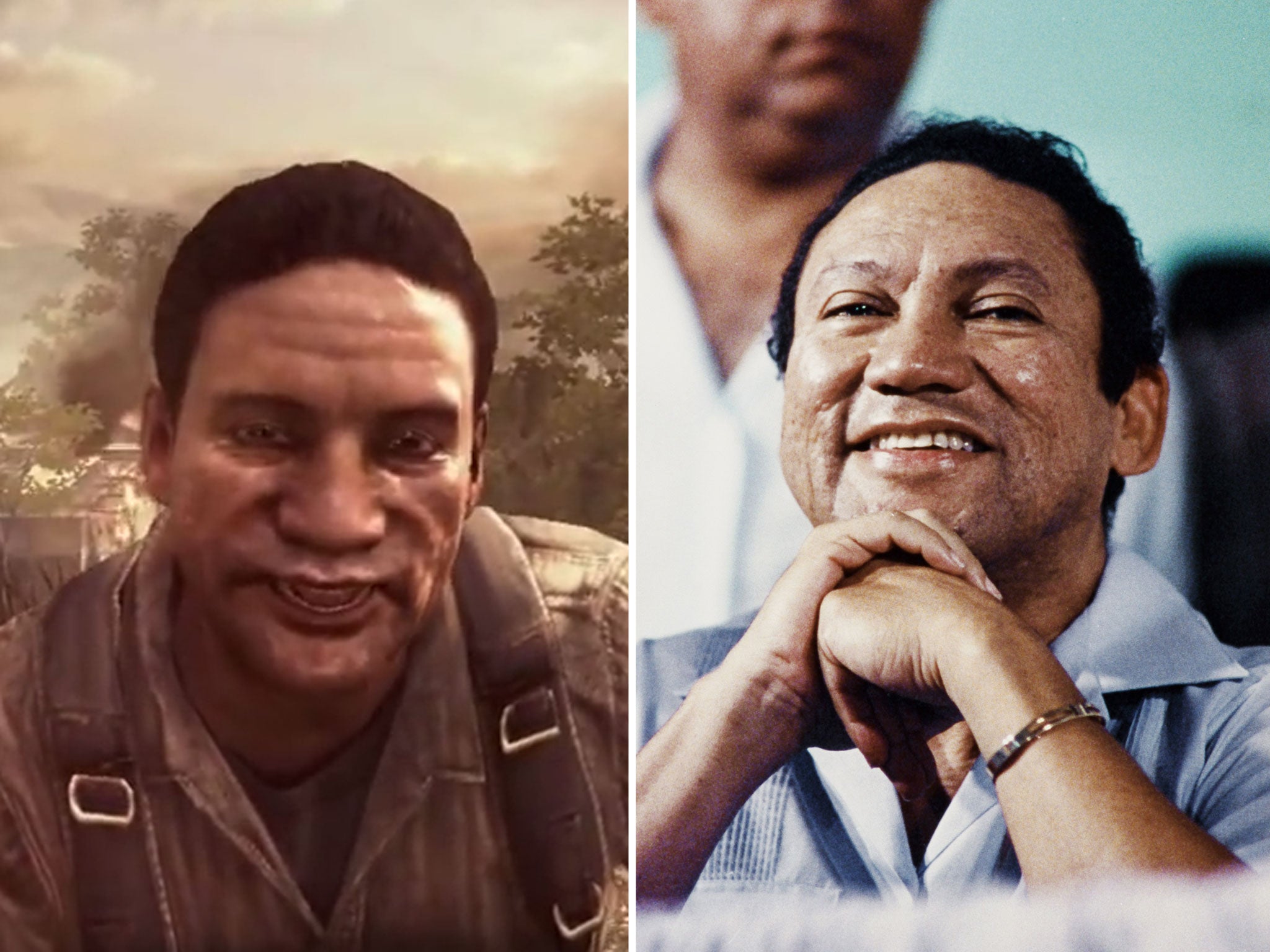Call of Duty sued by ex-dictator Manuel Noriega for 'portraying him as a kidnapper, murderer and enemy of the state'
The Noriega character betrays the protagonists in Black Ops II and is variously described as a ‘piece of s***’, ‘a**hole’ and ‘old pineapple face himself’

Your support helps us to tell the story
From reproductive rights to climate change to Big Tech, The Independent is on the ground when the story is developing. Whether it's investigating the financials of Elon Musk's pro-Trump PAC or producing our latest documentary, 'The A Word', which shines a light on the American women fighting for reproductive rights, we know how important it is to parse out the facts from the messaging.
At such a critical moment in US history, we need reporters on the ground. Your donation allows us to keep sending journalists to speak to both sides of the story.
The Independent is trusted by Americans across the entire political spectrum. And unlike many other quality news outlets, we choose not to lock Americans out of our reporting and analysis with paywalls. We believe quality journalism should be available to everyone, paid for by those who can afford it.
Your support makes all the difference.The maker of Call of Duty is being sued by the former dictator of Panama over his appearance as a villain in the hugely popular video game series.
Manuel Noriega was ousted as leader of the Central American state when the US invaded in 1989, and spent almost two decades in a Miami jail on drug trafficking charges.
Now 80 and residing in a prison in Panama, Noriega is seeking damages from game publisher Activision Blizzard for portraying him as “a kidnapper, murderer and enemy of the state” in Call of Duty: Black Ops II.
In the game, which sold more than 24 million copies worldwide, a character called Manuel Noriega reneges on a deal with the CIA, betrays the main playable characters and indiscriminately shoots members of his “own private police force” – the army of Panama.
Unlike with the recent case of Lindsay Lohan suing the makers of Grand Theft Auto V, there is no question that the villain in Call of Duty is styled on the former military dictator.
He is variously described by characters within the game as a “piece of s***”, “a**hole” and “old pineapple face himself, Manuel Noriega” – the nickname used in Panama to describe the man himself because of his “pockmarked visage”.

In his lawsuit brought at the Los Angeles Superior Court, Noriega claims Call of Duty made more money from his likeness because the “heighten[ed] realism” of using real people “translates directly into heightened sales for the defendants”.
According to the Courthouse News Service, the 13-page suit reads: “In an effort to increase the popularity and revenue generated by Black Ops II, defendants used, without authorization or consent, the image and likeness of plaintiff in Black Ops II.
“Defendants' use of plaintiff's image and likeness caused damage to plaintiff. Plaintiff was portrayed as an antagonist and portrayed as the culprit of numerous fictional heinous crimes, creating the false impression that defendants are authorized to use plaintiff's image and likeness. This caused plaintiffs to receive profits they would not have otherwise received.”
An in-game scene where Noriega is captured by CIA agents (warning, contains violence and strong language)
Noriega is seeking damages for unjust enrichment, unfair business practices, and violation of common-law publicity rights – not, it seems, for libel.
Black Ops II generated more than $1 billion (£580 million) in sales in just its first two weeks of sales in November 2012, while Activision Blizzard as a whole received revenues in excess of $4.5 billion last year.
This is not the first time the game has come under scrutiny for including real people as characters. The Los Angeles Times reported that the publisher has previously faced questions over a likeness to former US General David Petraeus, who at the time had just left his role as director of the CIA.
Activision reportedly said then that Petraeus had not been paid, “was not involved in the creation of the game” and that “it is clear to game players that his character and others that are based on real-life figures are fantasy”.
Join our commenting forum
Join thought-provoking conversations, follow other Independent readers and see their replies
Comments